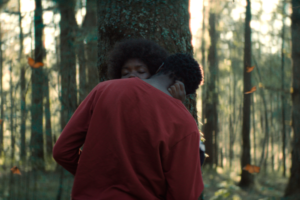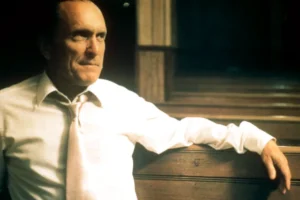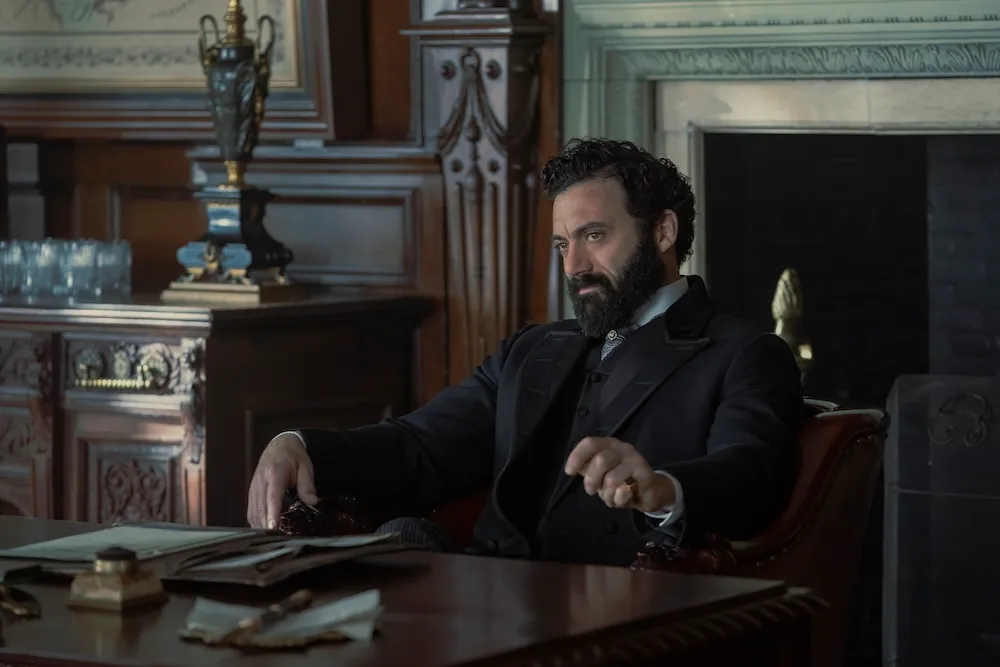Before Morgan Spector ever put on the three-piece suit of railroad baron George Russell, he was concerned audiences might feel alienated by the opulence of HBO’s “The Gilded Age.”
“The vast majority of people just don’t have anything in common with someone like George Russell,” he says. “When I first read these scripts, it was in 2020. Bernie Sanders was still a frontrunner in the presidential campaign, and class politics were in the news. There was a sense that maybe we are tired of billionaires and their power.”
He’s not wrong for wondering just how elastic viewer tolerance would be for 19th century cultural warfare between old and new money. But Spector credits creator Julian Fellowes with recognizing the timeless appetite for sudsy yet sharp historical fiction that places privileged characters and their often-trivial problems in the context of a transformational moment in history. During the show’s second season, audiences showered praise on its extravagance and catty commentary.
But credit should also be paid to Spector for challenging the stereotype of self-made industrial titan that history both dignifies and detests in equal measure. The immaculately costumed show is led by the indomitable likes of Christine Baranski, Carrie Coon, Cynthia Nixon, Denée Benton and Donna Murphy. But George Russell is the one character to figuratively and literally walk in the dual worlds of lavish balls and business dealings.
In Season 2 , he faces a brewing strike among his railroad workers. But Spector humanizes the character by counterbalancing his firm hand in business with his soft touch at home. In the Russell household, the blind ambition belongs to his wife, Bertha (Coon), who George backs in a war over New York’s dueling opera houses.
“For George, his business life has real stakes,” Spector says. “Not just that he could lose his business, but people could die. So sometimes he is there to put Bertha’s travails into perspective, and sometimes he is there to say that they will fight for this. For the most part, I think he is always doubling down on his support for her.”
While audiences likely come to the show for its powerful women and material indulgences, it needs Spector’s gravitas. Nothing authenticates grandeur like a reminder that someone is fighting daily to hold onto it.
The pair’s unwavering support could be their undoing in Season 3. Through Bertha’s social climbing, George has had only one request — that their daughter Gladys (Taissa Farmiga) be able to choose a love match versus an arranged marriage. Yet, in order to launch the Metropolitan Opera House in the season finale, Bertha appears to have promised Gladys to the Duke of Buckingham as payment for his support. How that will shake George’s steady hand has Spector concerned. “I am nervous about it,” he says. “I don’t know how they put that genie back in the bottle. George and Bertha’s relationship is so good that, from an acting perspective, my comfort comes from moving together as this powerful unit with Carrie. With real strife ahead, it is going to be difficult in the Russell household
















+ There are no comments
Add yours